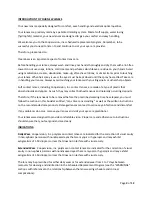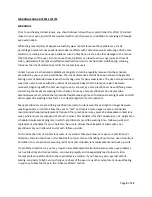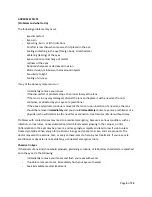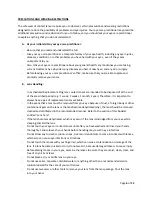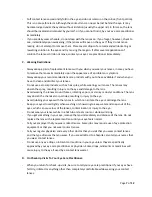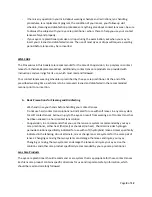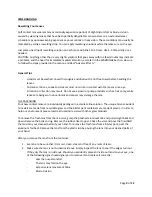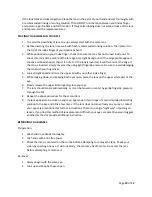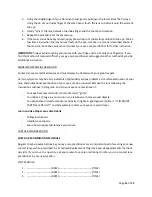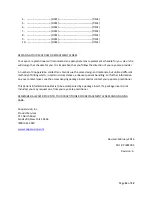
Page
5
of
12
ADVERSE
EFFECTS
(Problems
and
what
to
do)
The
following
problems
may
occur:
‐
Eye
discomfort
‐
Eye
pain
‐
Eyes
sting,
burn,
or
itch
(irritation)
‐
Comfort
is
less
than
when
lens
was
first
placed
in
the
eye
‐
Feeling
something
in
the
eye
(foreign
body,
scratched
are)
‐
Watering
(tearing)
of
the
eyes
‐
Eye
secretions
or
discharge
of
matter
‐
redness
of
the
eyes
‐
Reduced
sharpness
or
decreased
in
vision
‐
Blurred
vision,
rainbows
or
halos
around
objects
‐
Sensitivity
to
light
‐
Feeling
of
dryness
If
any
of
the
above
symptoms
occur:
‐
Immediately
remove
your
lenses
‐
If
the
discomfort
or
problem
stops,
then
look
closely
at
the
lens
‐
If
the
lens
is
in
any
way
damaged,
discard
the
lens
and
replace
it
with
a
new
lens
from
its
container,
as
directed
by
your
eye
care
practitioner.
‐
If
the
above
symptoms
continue
removal
of
the
lens
or
upon
insertion
of
a
new
lens,
the
lens
should
be
removed
immediately
and
you
should
immediately
contact
eye
care
practitioner
or
a
physician,
who
will
determine
the
need
for
examination,
treatment
or
referral
without
delay.
Problems
with
contact
lenses
may
lead
to
a
medical
emergency,
because
a
serious
condition,
such
as
infection,
corneal
ulcer,
neovascularization
(small
blood
vessels
growing
in
the
cornea),
or
iritis
(inflammation
in
the
eye)
may
be
present,
and
may
progress
rapidly
and
lead
to
loss
if
vision
unless
treated
promptly.
When
you
go
for
treatment,
bring
your
lenses,
lens
case,
and
care
products.
The
doctor
may
want
to
examine,
test,
or
analyze
these
items
to
help
in
your
treatment.
If
your
eye
care
practitioner
or
physician
is
not
available,
go
to
nearest
emergency
room.
Chemical
in
Eyes
If
chemicals
of
any
kind
(household
products,
gardening
solutions,
or
laboratory
chemicals)
are
splashed
onto
the
eyes,
do
the
following:
‐
Immediately
remove
your
lenses
and
flush
your
eyes
with
water
‐
If
unable
to
remove
lenses,
immediately
flush
your
eyes
with
water
‐
Seek
immediate
medical
treatment



